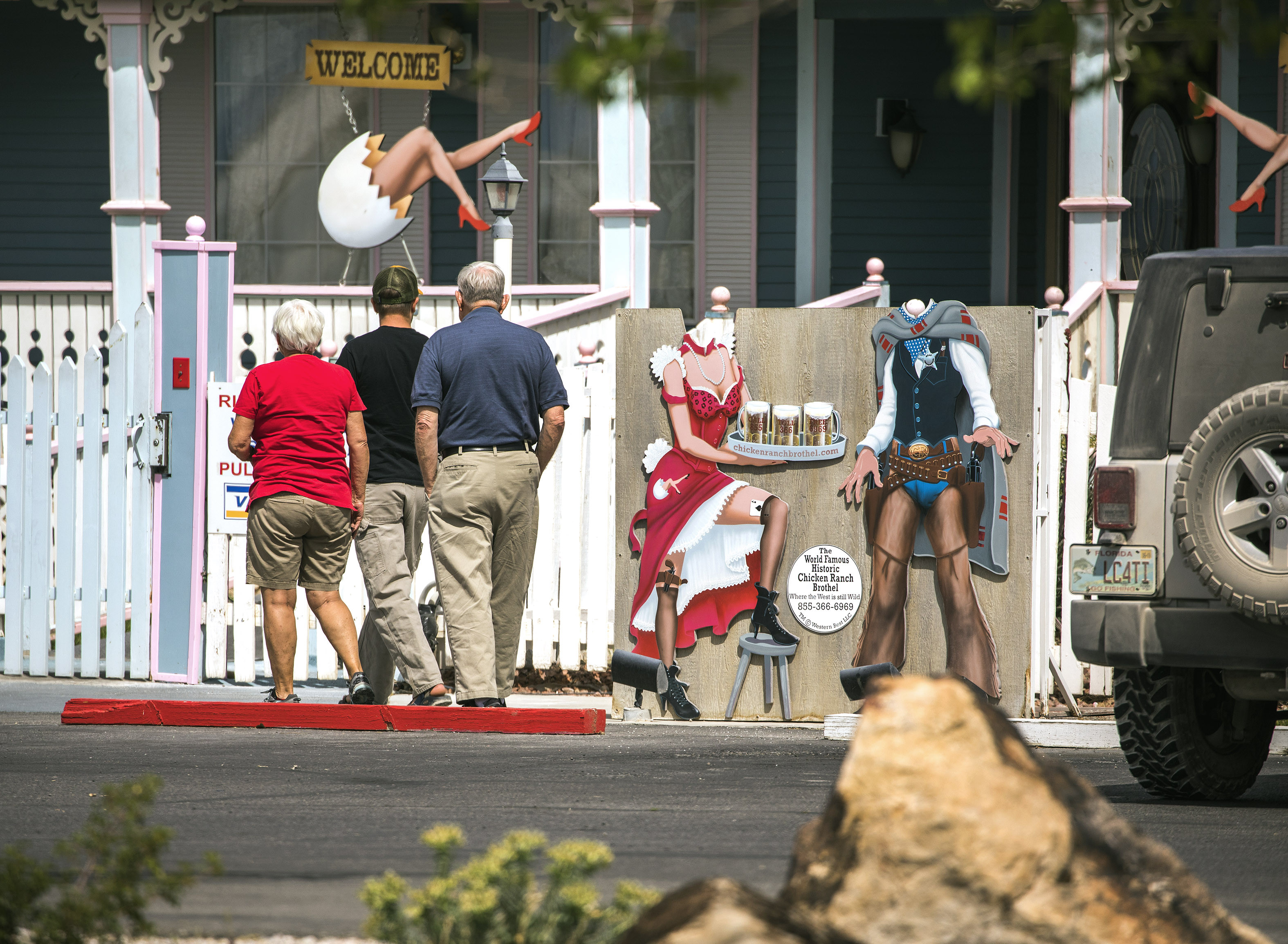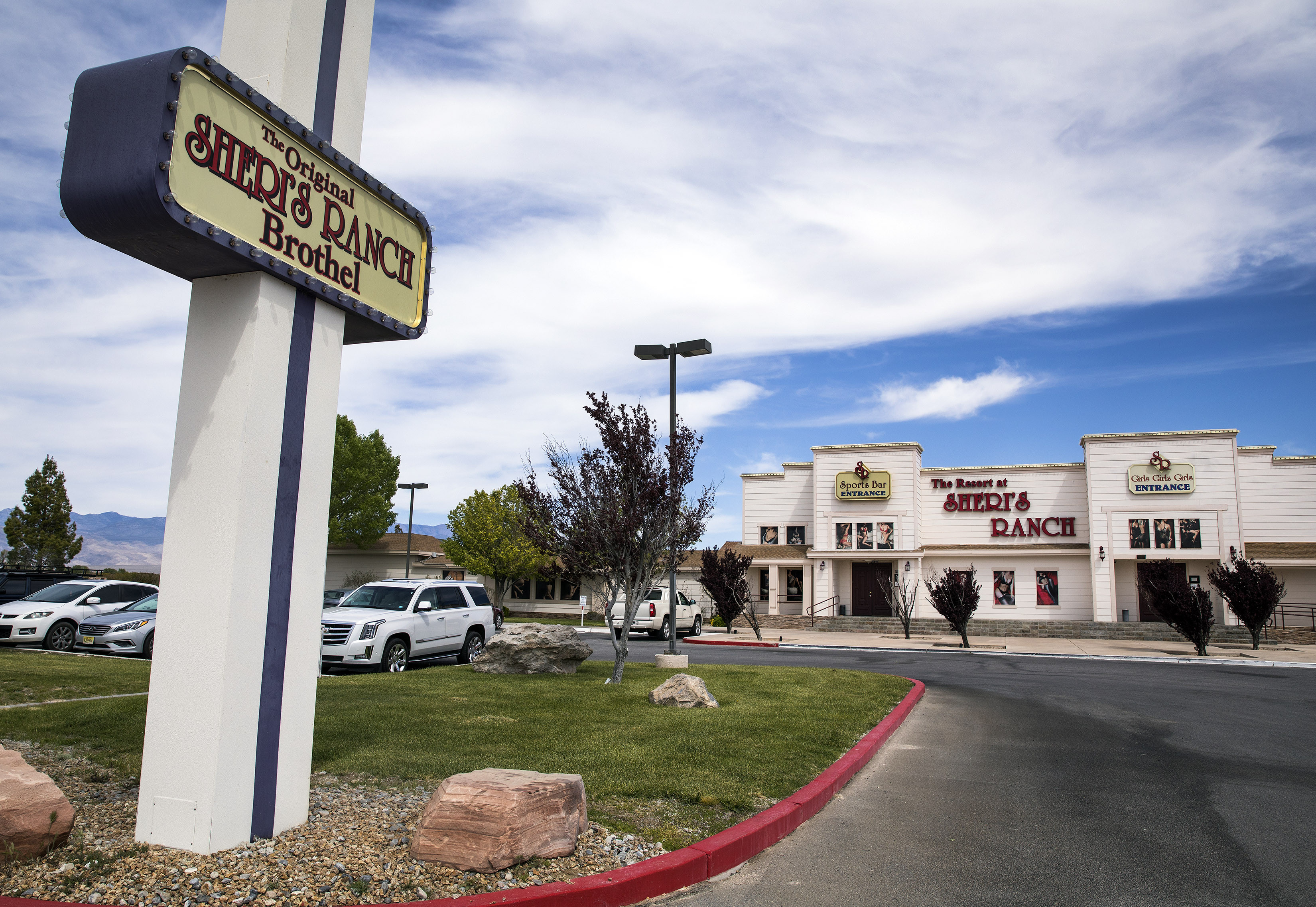Nevada often stands out in the United States for its unique approach to certain social issues, and prostitution is no exception. While largely illegal across the country, Nevada has a distinct legal framework that permits prostitution under specific conditions. This has led to much discussion and curiosity about where exactly prostitution is legal in the U.S., and what the nuances of Nevada’s law entail. For those seeking to understand the legal landscape of prostitution in the United States, Nevada presents a fascinating case study. But navigating Nevada’s laws, and understanding where and how prostitution operates legally, requires a closer look at the state’s specific regulations and the broader context of U.S. law.

Nevada’s Legal Brothels: A History Rooted in the 19th Century
The history of legal prostitution in Nevada is deeply intertwined with the state’s origins in the 19th century mining boom. Even before the 20th century brought widespread prohibition of prostitution across the United States, Nevada’s approach was already forming. While many areas in the U.S. began implementing bans and restrictions, often through vagrancy laws and measures against “streetwalking,” Nevada developed a more tolerant approach, especially within indoor establishments.
Following the Civil War, a growing movement against prostitution gained momentum, linked in part to the abolitionist movement. This era saw numerous states move to outlaw licensed brothels. However, Nevada remained an outlier. For decades, brothels operated openly, existing in a gray area of tolerance, if not explicit legality. It wasn’t until 1971 that Nevada officially codified legal prostitution when Storey County sanctioned Joe Conforte’s Mustang Ranch Brothel. This landmark decision, as historian Guy Rocha noted, marked the state’s first officially legal brothel, solidifying Nevada’s unique position in the United States regarding prostitution laws.
Pinpointing Legality: Nevada Counties and Brothel Restrictions
Understanding where prostitution is legal in the U.S. requires pinpointing specific locations within Nevada. Nevada state law explicitly prohibits both solicitation and prostitution, except within the confines of a licensed brothel. Furthermore, state statutes impose restrictions based on population size. Counties with populations exceeding 700,000 are prohibited from licensing brothels. Currently, this population restriction applies to Clark County, which includes Las Vegas, a common misconception for many seeking legal prostitution in Nevada.
In reality, only a limited number of Nevada counties permit legal prostitution. As of current regulations, just ten Nevada counties have the option to allow licensed brothels. Among these, Churchill County technically permits prostitution, but has not had a licensed brothel since 2004. The counties where brothels are actively permitted across the entire county include Esmeralda, Lander, Mineral, Nye, and Storey. In contrast, Elko, Humboldt, Lyon, and White Pine counties have more localized regulations, permitting brothels only within specific incorporated communities.
It’s crucial to note that prostitution remains illegal in several Nevada counties, including Clark, Washoe, Carson City, Pershing, Douglas, Eureka, and Lincoln. This means that major cities like Las Vegas and Reno, as well as the state capital of Carson City, do not permit legal brothels. Therefore, when considering where in the U.S. prostitution is legal, the answer is narrowly confined to specific, mostly rural, counties within Nevada and explicitly not in its major urban centers.
The Landscape of Legal Brothels: Numbers and Locations
To further clarify where prostitution is legal in the U.S. within Nevada, examining the number and locations of operational brothels provides a clearer picture. Recent counts indicate approximately 20 licensed brothels operating in Nevada.
Nye and Lyon counties have the highest concentrations of brothels. Nye County hosts four brothels, including two previously owned by Dennis Hof. Lyon County also has four, all formerly under Hof’s ownership. Beyond these counties, Storey County is home to the Mustang Ranch in Sparks, while Mineral County features the Wild Cat Brothel in Mina. White Pine County operates two brothels, the Stardust Ranch Brothel and Big 4 Ranch in Ely. Lander County has the Hot Desert Club Girls in Battle Mountain. Elko County, with the largest number of brothels, includes the Dove Tail Ranch and Sharon’s Brothel and Bar in Carlin, along with Desert Rose Gentlemen’s Club, Inez’s D&D, Mona’s Ranch, and Sue’s Fantasy Club in Elko, and Bella’s Hacienda Ranch and Donna’s Ranch in Wells. This detailed breakdown illustrates the specific geographic areas within Nevada where legal prostitution is available, emphasizing its limited and localized nature within the state and the U.S. as a whole.
Taxation and Revenue: The Economics of Legal Prostitution in Nevada
While considering where prostitution is legal in the U.S., the economic aspects, particularly taxation, in Nevada provide another layer of understanding. Although Nevada brothels and sex workers are required to pay state business license fees, there isn’t a specific excise tax levied directly on sex acts themselves.
In 2009, a proposal was introduced to implement a $5-per-day tax on customers of prostitution services. This measure was projected to generate approximately $2 million annually, based on estimates of 400,000 customer days in Nevada’s legal brothels each year. Despite support from some within the industry, the bill failed to progress in the legislature, encountering opposition, including from then-Governor Jim Gibbons, who expressed concerns that taxing prostitution would legitimize it, something he did not support.
Despite the lack of a specific sex act tax, local governments in Nevada do generate revenue from brothels through various licensing fees. For example, in a recent fiscal year, Nye County collected over $140,000 from worker registration cards and brothel license fees. Brothel licensing fees in Nye County are structured based on size, ranging from just over $2,300 per quarter for smaller brothels to nearly $47,000 per quarter for larger establishments. Lyon County brothels contribute between $20,000 and $26,000 per quarter in licensing fees, resulting in an annual revenue of approximately $384,000 for the county from brothel-related licenses, including liquor and business licenses. Proponents of legal brothels often highlight these tax revenues as contributing to local services, including healthcare, law enforcement, and education.
Efforts to Ban Legal Prostitution and the Ongoing Debate
The question of where prostitution is legal in the U.S., specifically in Nevada, is not static, and has been subject to ongoing debate and attempts to change the legal landscape. In 2011, then-Senator Harry Reid voiced his opposition to legal prostitution in Nevada, arguing that it hindered the state’s image as a hub for innovation and investment. He suggested that lawmakers should consider a ban, recounting instances where business leaders expressed shock upon learning about Nevada’s legal brothels.
Despite Reid’s call to action, no legislative action was taken at the state level, with then-Governor Brian Sandoval deferring the issue to individual counties. However, recent years have seen renewed efforts to ban brothels at the county level. Movements to prohibit prostitution have emerged in counties like Lyon and Nye, seeking to put the issue to a vote through county-wide ballots. These efforts indicate an ongoing tension and evolving public discourse surrounding the legality of prostitution even in Nevada, the primary location where prostitution is legal in the U.S.

Advertising and Restrictions: Reaching Potential Clients
For those interested in understanding where prostitution is legal in the U.S. and how it operates in Nevada, the regulations around advertising are significant. Nevada law places restrictions on how brothels can advertise their services. Brothels are prohibited from advertising in jurisdictions where local ordinances or state statutes ban prostitution. Even in areas where brothels are legal, advertising is restricted in “public theaters, on the public streets of any city or town, or on any public highway.”
These restrictions mean that brothels must rely on more discreet methods of advertising and client outreach. This contributes to a somewhat hidden or niche aspect of legal prostitution in Nevada, despite its unique legal status within the U.S.
The Cost of Services and Worker Compensation in Nevada Brothels
Understanding where prostitution is legal in the U.S. also involves considering the economic transactions within Nevada’s legal brothels. The cost of services in Nevada brothels is not fixed and varies significantly. Sex workers negotiate their rates directly with clients for “parties” or sexual encounters, with prices depending on the services requested from a menu.
Workers report setting their own prices, with some stating they generally do not engage in intercourse for less than $1,000. More extended engagements, such as overnight stays or “Girlfriend Experiences” that include non-sexual date-like activities, can be priced at approximately $1,000 per hour. Historical accounts and anecdotes from brothel owners describe instances of lavish, extended “parties” lasting days or even months, with costs reaching into the millions of dollars. However, more common encounters can range from $300 to $400, and sometimes lower.
Regarding worker compensation, a common arrangement in Nevada brothels involves workers retaining half of their earnings, with the brothel keeping the other half to cover operational costs. Workers are also responsible for expenses such as rent, food, transportation, and mandatory weekly STD testing and sex worker registration cards, the costs of which vary by county. In Nye County, for example, registration fees are $150 per quarter plus an annual fee of $150. Legally, sex workers in Nevada brothels are classified as independent contractors and are required to obtain state business licenses, operating, as one brothel owner described, “like any other independently licensed business,” without traditional employee benefits. However, this “independent contractor” classification has been critiqued, with some arguing that brothel policies and operational pressures create a less autonomous reality for the workers.
Worker Perspectives: Experiences in Nevada’s Legal Brothels
Personal accounts from individuals working in Nevada’s legal brothels offer diverse perspectives on what it’s like where prostitution is legal in the U.S. Some workers describe positive aspects of the environment. One worker, who conducted dissertation research within a brothel, described her experience as “a lot of fun” and noted a “familial atmosphere.” She highlighted the autonomy workers have in choosing clients and setting boundaries.
However, other accounts present a more critical view. Some former brothel workers describe challenging conditions, including economic precarity and pressures to engage with clients. They dispute the portrayal of brothel work as glamorous or consistently empowering, pointing to instances of substance abuse and financial struggles among workers. Some workers have also voiced concerns about the “independent contractor” model, citing limitations on their freedom and pressures to maximize earnings. Former sex workers who have left the industry have become outspoken critics of legal prostitution, arguing that it is inherently exploitative and dehumanizing. These varied experiences underscore the complexity of the issue and the range of individual realities within Nevada’s legal brothel system, the most prominent example of where prostitution is legal in the U.S.
Age Requirements and Daily Life in a Legal Brothel
Further details help paint a fuller picture of where prostitution is legal in the U.S., specifically within Nevada’s brothels. Age requirements for sex workers vary by county. For instance, Nye County mandates a minimum age of 21, while Lyon County sets it at 18.
The daily routine in a Nevada brothel typically begins around 11 a.m., with workers required to be “show ready”—showered, groomed, and dressed in lingerie, prepared for client selection. When a client arrives, the workers line up, allowing the client to choose who they wish to engage with. This lineup process, as described by a brothel madam, can be emotionally challenging for workers, especially those who are not frequently chosen. Despite these challenges, brothel owners often emphasize policies that allow workers to decline clients, a principle corroborated by some sex workers as a key aspect of their agency within the legal framework. Much of the client interaction and booking process occurs online, with workers actively using brothel message boards to attract clients. However, discussions about pricing across state lines are cautioned against to avoid legal complications.
Conclusion: Nevada’s Unique Position in the U.S. Prostitution Landscape
In conclusion, when addressing the question of where prostitution is legal in the U.S., Nevada stands as the clear, and almost singular, answer. However, the legality is far from uniform across the state. It is confined to licensed brothels operating in specific, mostly rural counties, and is explicitly illegal in major Nevada cities like Las Vegas and Reno. Nevada’s legal brothel system, rooted in historical tolerance and economic considerations, presents a unique and complex case study within the broader U.S. context where prostitution remains largely outlawed. While generating revenue and providing a regulated environment, the system is continuously debated, with ongoing efforts to ban brothels in certain counties and diverse perspectives existing among sex workers regarding their experiences within this unique legal framework. Nevada’s situation underscores the intricate legal, social, and ethical dimensions surrounding prostitution in the United States.

